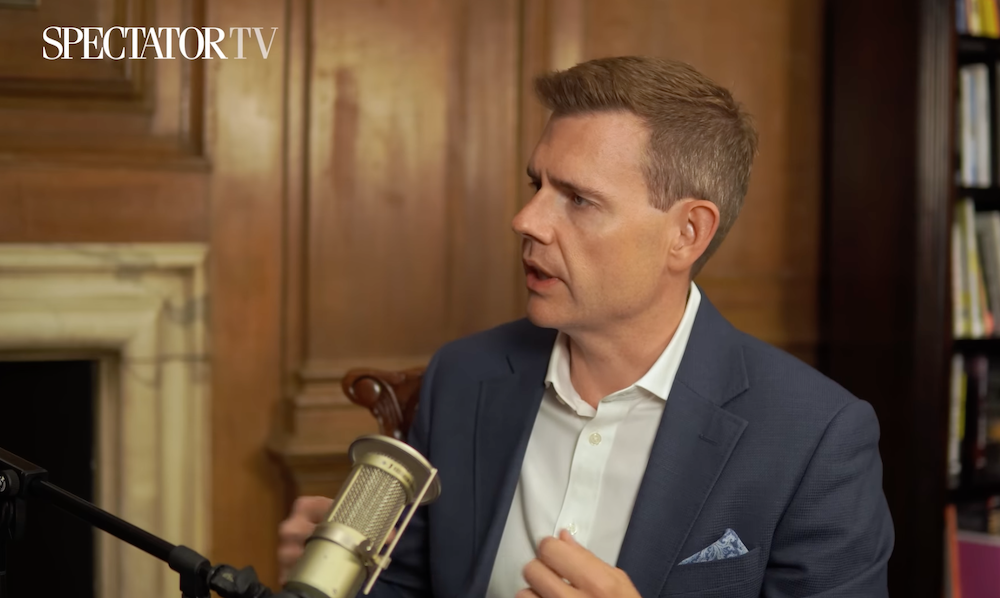Universities fought tooth and nail against plans to impose fines if they failed to uphold freedom of speech. That proposal – contained in last year’s Higher Education (Freedom of Speech) Act – was one of the few things the Tory government could point to as a success. But under Labour the plan has been shelved. It’s a good day for universities; a bad day for anyone who cares about free speech on campus.
This bleak episode neatly sums up Labour’s attitude to higher education
Education Secretary Bridget Phillipson said that the ministerial order, which was required to bring into force the relevant parts of the new law, would be delayed. She told the Commons, with obvious pleasure, she was ready to ‘consider options, including repeal.’ In short, the Act is dead.
This matters a lot. If activated, the new legislation would have explicitly protected students and staff from being disadvantaged because of their ideas or opinions; made it illegal to discriminate on ideological grounds in the provision of university spaces, such as meeting rooms; protected the right to invite controversial outside speakers; and made universities potentially liable in damages to anyone whose free speech was infringed.
Put another way, it would have greatly reduced the wiggle-room currently available for university apparatchiks to tell those with awkward views to put up or shut up – or to allow coteries within colleges to make life so uncomfortable for them that they either became isolated or left in disgust.
It would also have made it much harder for universities to exercise discreet control over which outside speakers might find themselves invited by academics and student societies. Instead of sheltering, as at present, behind HR clichés, such as the need to ensure all their students and staff felt safe, or the principle that conflict ought to be avoided, college authorities would have had to engage actively with the issues of free speech involved. If they did not, they would have faced serious legal and financial sanctions difficulties.
As it is, however, the educational blob need not be worried. People in universities will continue to be protected only by the existing largely platitudinous duty imposed under 1986 legislation to protect ‘freedom of speech within the law’, a prescription lacking both precision and teeth.
The result is already fairly predictable. Those with controversial views – the gender-critical, the aggressively conservative or the strongly pro-Israel – will continue to find life on campus hard. Although some university teachers have succeeded in legal claims against their institutions after being forced out on the basis of their expressed views, employment law provides only limited protection for them; broadly, if universities get the procedures right, they have little to fear unless the claimant can produce a slam-dunk case of discrimination in respect of philosophical views protected under the European Convention on Human Rights (ECHR). Employment law, of course, will do little to protect students.
You get the impression that none of this will unduly bother Phillipson or Keir Starmer. Her excuse for ditching the freedom of speech legislation was that it would be ‘burdensome on providers.’ A charitable interpretation is that this is a convenient fig-leaf for a decision taken on other grounds. Depressingly, however, it is probably quite true. Phillipson is a managerialist. She is concerned with making sure the right controls are present, the correct forms filled in, and that the orderly production of graduates continues. That way, everything fits together: she will then probably be able to announce in due course that the other body she recently created, Skills England, has fulfilled its quota.
As for free speech within universities, is Phillipson actually against it? Almost certainly not. It’s just that she doesn’t seem that interested in defending it. Unless it can be harnessed to some buzz-phrase like innovation or transferable skills, Labour sees it as an irrelevance; an aspect of the culture war which, with Culture Secretary Lisa Nandy, she no doubt longs to be able to announce is over.
This bleak episode neatly sums up Labour’s attitude to higher education. For all their faults, the Tories realised that academia had to be shaken up and the dead hand of the academic establishment dealt with. In a nice reversal of roles, Phillipson has shown herself to be deeply reactionary, frightened of change and inclined to appease a complacent senior management. Come to think of it, that’s rather the attitude of Keir Starmer himself. Phillipson, depressingly, makes for a perfect fit in his programme of faux radicalism combined with the appeasement of managerial mediocrity.







Comments